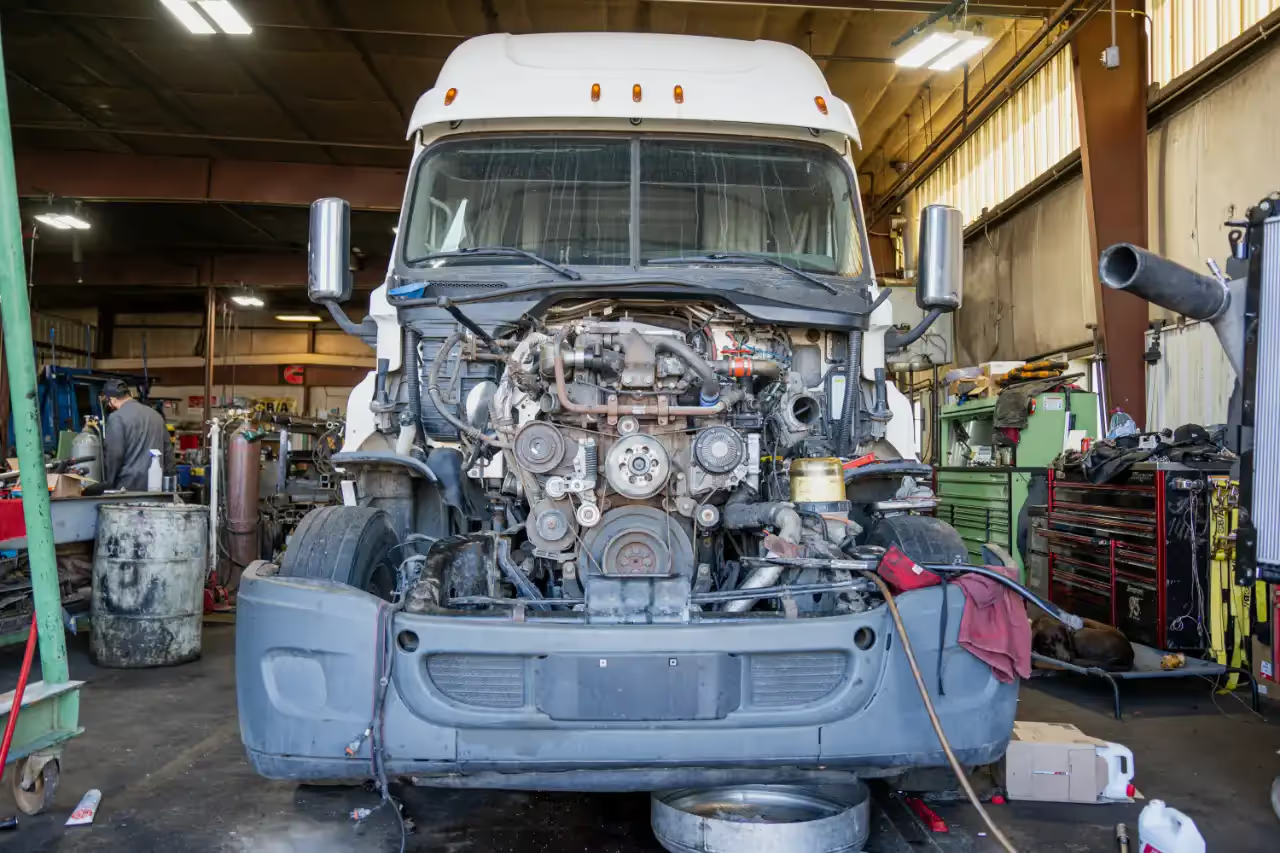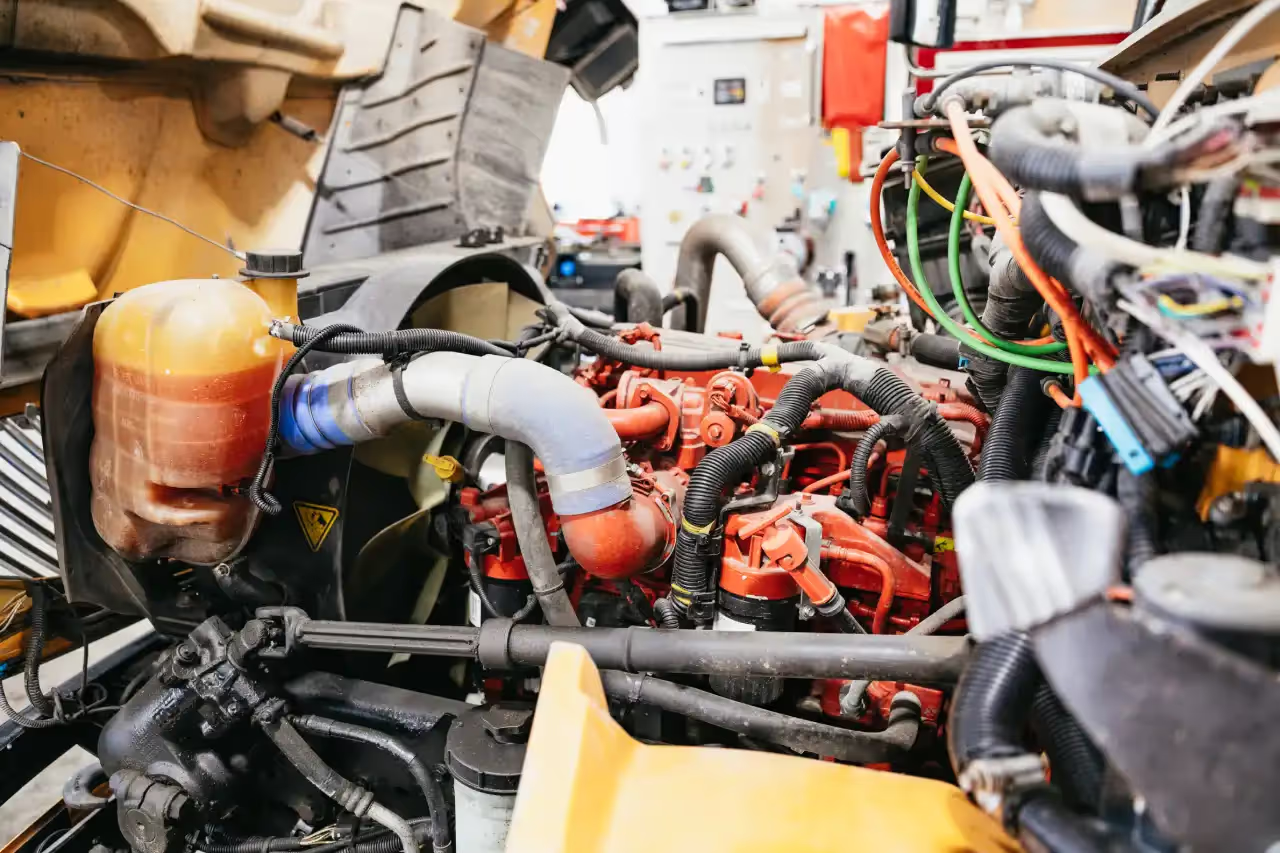We might not think about it much, but wheel alignment is a critical aspect of heavy-duty truck maintenance that can significantly impact performance, safety, and cost-effectiveness. Whether you're a seasoned truck driver or a fleet manager overseeing a fleet of heavy-duty assets, understanding the importance of wheel alignment in heavy-duty trucks is the one of the steps in achieving a safe and efficient business. In this comprehensive guide, we'll delve into the significance of wheel alignment, its numerous benefits, and the potentially costly effects of neglecting it.
Understanding Wheel Alignment
Wheel alignment, in essence, refers to the precise adjustment of the angles of a truck's wheels so that they are parallel to each other and perpendicular to the ground. It involves three primary components:
- Camber: This refers to the vertical tilt of the wheel when viewed from the front. Proper camber ensures that the tire's contact patch with the road is even, promoting uniform tire wear.
- Toe: Toe alignment pertains to the horizontal angle of the wheels when viewed from above. Correct toe alignment ensures that the wheels are parallel to each other. Misaligned toe can lead to excessive tire wear and poor handling.
- Caster: Caster angle refers to the forward or backward tilt of the steering axis when viewed from the side. Proper caster alignment influences steering stability and helps maintain straight-line tracking.
Wheel alignment, also referred to as truck alignment, is not just about maintaining straight-line stability; it affects various aspects of your heavy-duty truck's performance and safety.
Benefits of Proper Truck Wheel Alignment
Improved Handling and Stability
Correct semi-truck wheel alignment enhances your truck's handling and stability. When your wheels are properly aligned, the truck responds promptly to steering inputs, ensuring that you have optimal control even in challenging driving conditions. This translates to safer and more predictable handling on highways and city streets.
Extended Tire Life
One of the most significant advantages of proper wheel alignment is the extended life of your truck's tires. When your wheels are out of alignment, uneven tire wear occurs. This not only reduces the lifespan of your tires but also leads to uneven tire replacement costs. By maintaining proper alignment, you can significantly cut down on tire-related expenses.
Enhanced Fuel Efficiency
Believe it or not, wheel alignment can have a substantial impact on your truck's fuel efficiency. Misaligned wheels result in increased rolling resistance, forcing your engine to work harder to move the truck. This extra strain on the engine consumes more fuel, leading to reduced miles per gallon (MPG). Proper alignment helps reduce this resistance, potentially saving you a significant amount of fuel over time.
Increased Safety
Safety should always be a top priority for heavy-duty truck operators. Proper wheel alignment plays a vital role in ensuring your truck's safety on the road. When your wheels are correctly aligned, your truck responds predictably to steering inputs, making it easier to maintain control during emergency maneuvers or sudden stops. Misaligned wheels, on the other hand, can result in erratic handling and reduced braking efficiency, posing serious safety hazards.
Effects of Poor Semi-Truck Wheel Alignment
Uneven Tire Wear
One of the most noticeable effects of poor commercial truck wheel alignment is uneven tire wear. Misaligned wheels cause specific areas of the tires to bear more weight and friction than others. This leads to irregular tire wear patterns, such as cupping, feathering, or one-sided wear. Uneven tire wear not only reduces tire life but also compromises your truck's stability and safety.
Reduced Handling and Control
Misaligned wheels can severely impact your truck's handling and control. When your wheels are not working together as they should, you'll notice symptoms like drifting or pulling to one side, even when you're trying to drive straight. This not only makes driving more challenging but also increases the risk of accidents, especially in adverse weather conditions or during sudden maneuvers.
Increased Operating Costs
Neglecting wheel alignment can have significant financial implications. The most immediate cost is the frequent replacement of tires due to uneven wear. Additionally, misaligned wheels can lead to increased maintenance and repair costs, as other components, such as suspension and steering systems, may suffer accelerated wear and tear. These unexpected expenses can quickly add up, affecting your truck's overall operating costs.
Signs of Misalignment in Heavy-Duty Trucks
To ensure that your heavy-duty truck maintains proper wheel alignment, it's crucial to be vigilant and proactive in detecting alignment issues. Some common signs of misalignment include:
- Uneven tire wear patterns
- Drifting or pulling to one side while driving
- A steering wheel that is off-center when driving straight
If you notice any of these symptoms, it's essential to schedule a wheel alignment check promptly to prevent further damage and ensure your safety on the road.
Regular Wheel Alignment Maintenance
Proper wheel alignment is not a one-time task but an ongoing commitment to your truck's health. It's recommended to have your heavy-duty truck's wheels aligned:
- When you purchase new tires
- After hitting a pothole or curb
- After significant suspension or steering system repairs
- As part of routine maintenance, typically every 10,000 to 12,000 miles
For the most accurate and effective wheel alignment, it's advisable to seek professional services that offer specialized tractor-trailer wheel alignment. Certified technicians use advanced equipment to ensure precise alignment, optimizing your truck's performance and safety.
Final Words
In the world of heavy-duty trucks, where reliability, safety, and cost-effectiveness are paramount, wheel alignment stands as a fundamental aspect of maintenance. It's not just a chore; it's a vital investment in your truck's performance and longevity. By maintaining proper wheel alignment, you'll enjoy benefits like improved handling, extended tire life, enhanced fuel efficiency, and increased safety. Moreover, you'll avoid the costly effects of poor alignment, including uneven tire wear, reduced handling, and increased operating costs in the long run.





.svg)

